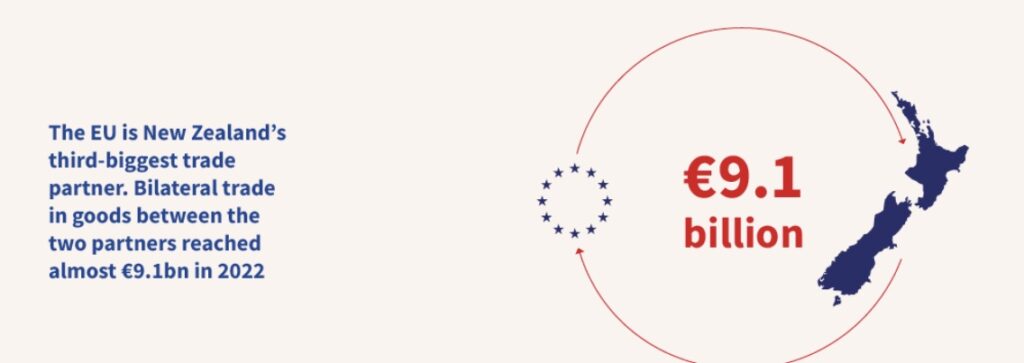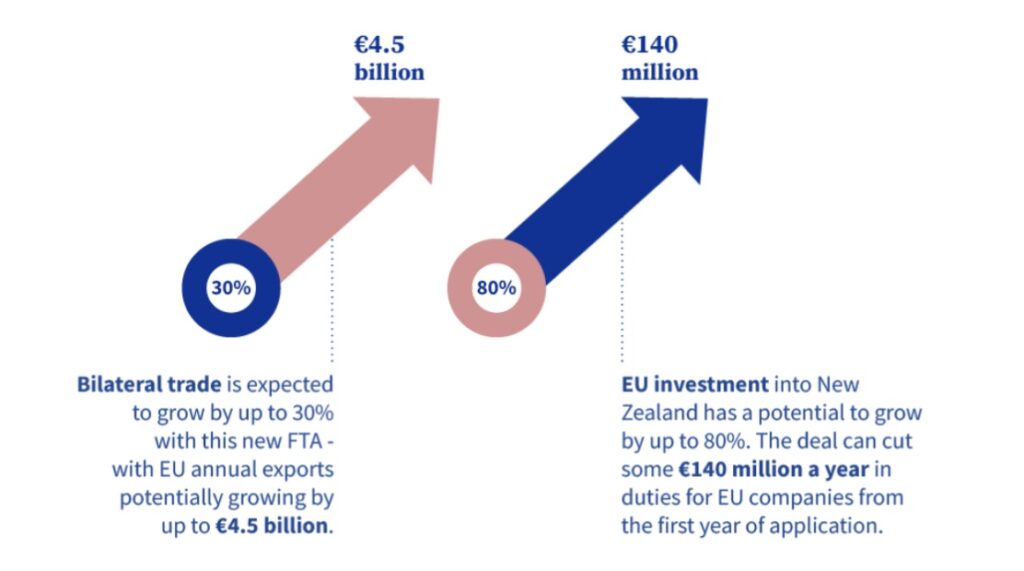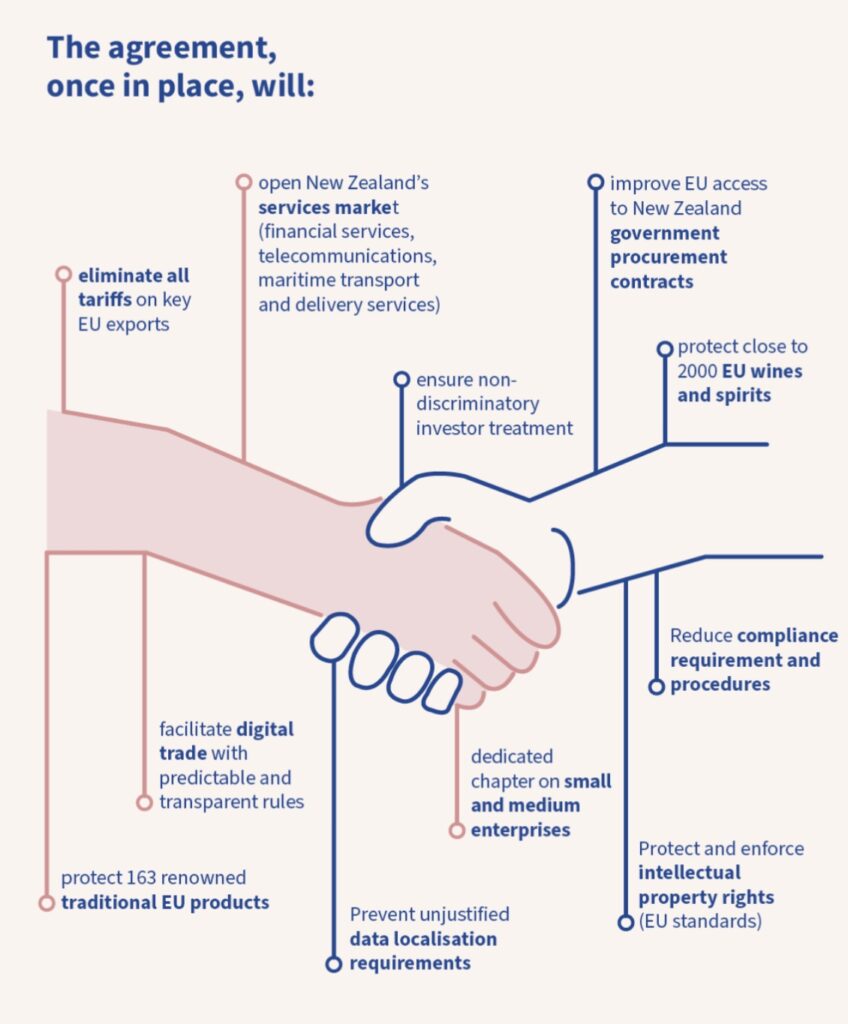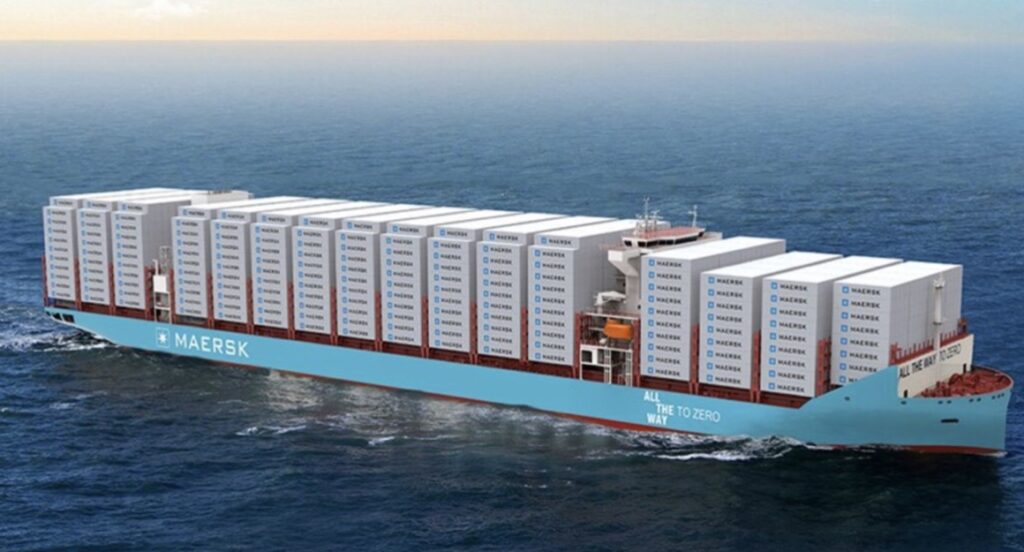On 27 June, the Council adopted a decision on the signature of the free trade agreement (FTA) with New Zealand.

The EU is New Zealand’s third-biggest trade partner. Bilateral trade in goods between the two partners has risen steadily in recent years, reaching almost €9,1bn in 2022.
Once the agreement enters into force, bilateral trade is expected to grow by up to 30% thanks to this deal, with EU annual exports potentially growing by up to €4.5 billion. EU investment into New Zealand has a potential to grow by up to 80%. The deal can cut some €140 million a year in duties for EU companies from the first year of application.
Johan Forssell, Swedish Minister for International Development Cooperation and Foreign Trade”In the current geopolitical context, after COVID-19 and Russia’s aggression against Ukraine, this new agreement with a like-minded partner as New Zealand is of key importance for the EU and the EU’s Indo-Pacific strategy. The FTA represents major opportunities for our companies, our farmers and our consumers, as well as for the New Zealand counterparts. It also includes unprecedented social and climate commitments”

The agreement, once in place, will:
- eliminate all tariffs on key EU exports to New Zealand such as pigmeat, wine and sparkling wine, chocolate, sugar confectionary and biscuits
- open New Zealand’s services market in key sectors such as financial services, telecommunications, maritime transport and delivery services
- ensure non-discriminatory treatment to EU investors in New Zealand and vice versa
- improve access for EU companies to New Zealand government procurement contracts for goods, services, works and works concessions
- protect close to 2000 EU wines and spiritssuch as Prosecco, Polish Vodka, Rioja, Champagne and Tokaji
- protect 163 of the most renowned traditional EU products (Geographical Indications), such as Asiago, Feta, Comté or Queso Manchego cheeses, Istarski pršut ham, Lübecker Marzipan or Elia Kalamatas olives
- facilitate data flows, predictable and transparent rules for digital trade and a secure online environment for consumers
- prevent unjustified data localisation requirements and maintaining the high standards of personal data protection
- help small businesses export more through a dedicated chapter on small and medium enterprises
- reduce compliance requirement and procedures to allow for quicker flow of goods
- protect and enforce intellectual property rights, aligned with EU standards, according to commitments by New Zealand

The EU-NZ Free Trade Agreement is the first one to fully integrate the EU’s new approach to trade and sustainable development (TSD) which has been endorsed by the Council in the conclusions of 17 October 2022.
It includes a dedicated sustainable food systems chapter, a dedicated trade and gender equality article and a dedicated provision on trade and fossil fuel subsidies reform.
The deal also liberalises green goods and services at entry into force.
In case of serious violations of core labour principles or of the Paris Agreement, the FTA foresees sanctions as a last resort.
Another of those days is about to end. Today I had a twelve online back-to-back-meeting-day. The life of a leader today.

It is exhausting. Tomorrow? Backnip on the horse again. It starts at 08am.
Today, A.P. Moller – Maersk announce the order of six green methanol powered vessels!
Each will have a capacity of 9,000 containers, and be built by YANGZIJIANG SHIPBUILDING in China. With this order, we take another important step in the green transformation of our fleet, and towards our target of becoming net-zero in 2040.

As with all our other vessel orders for the last two years, these ships will have dual fuel engines – making them able to operate on both fuel oil and green methanol. Our total methanol powered orderbook now stands at 25 vessels
What a GREAT day for the efforts to decarbonise logistics!
Press release:Read more here






You must be logged in to post a comment.